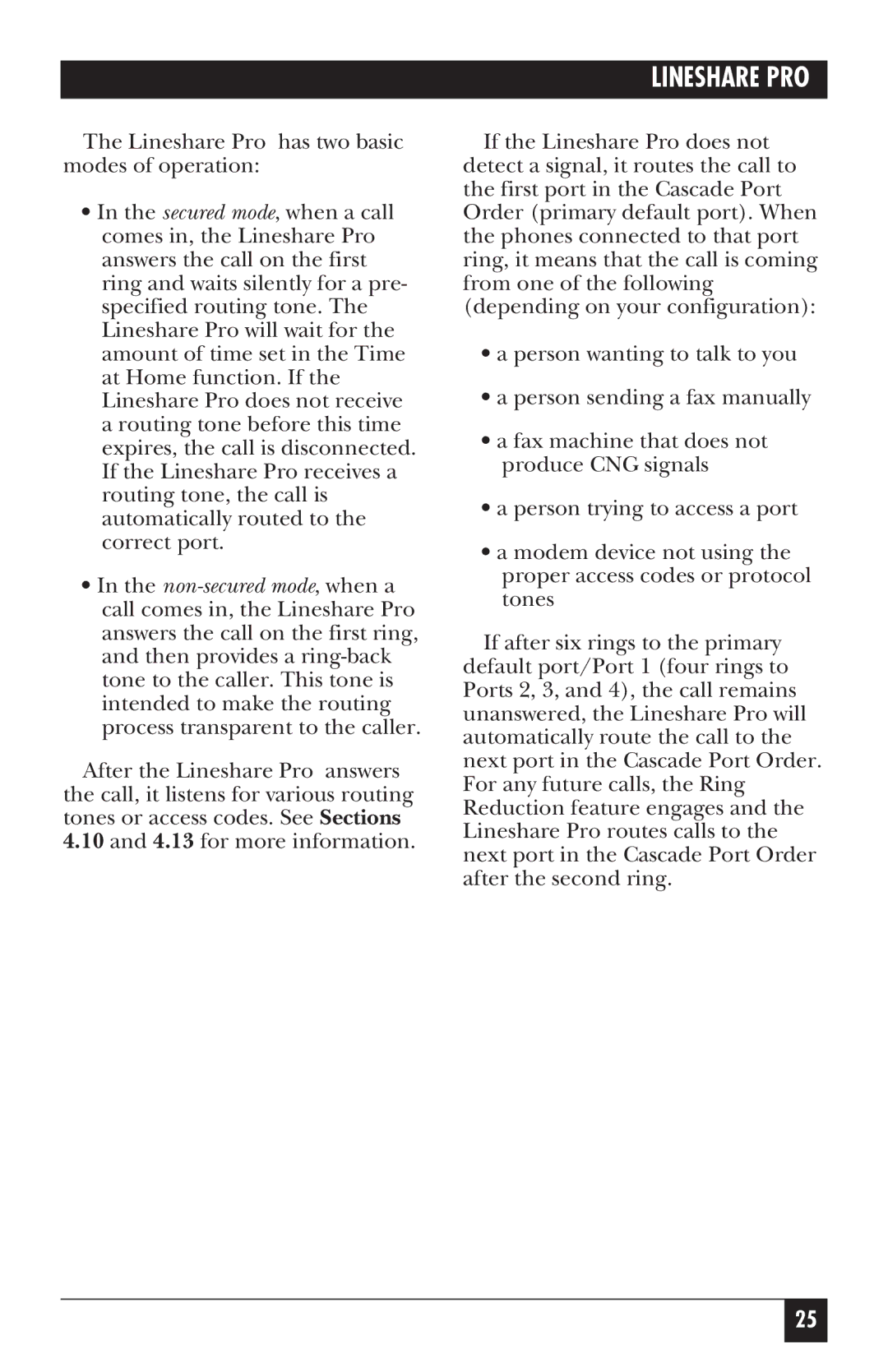
LINESHARE PRO
The Lineshare Pro has two basic modes of operation:
•In the secured mode, when a call comes in, the Lineshare Pro answers the call on the first ring and waits silently for a pre- specified routing tone. The Lineshare Pro will wait for the amount of time set in the Time at Home function. If the Lineshare Pro does not receive a routing tone before this time expires, the call is disconnected. If the Lineshare Pro receives a routing tone, the call is automatically routed to the correct port.
•In the
After the Lineshare Pro answers the call, it listens for various routing tones or access codes. See Sections
4.10and 4.13 for more information.
If the Lineshare Pro does not detect a signal, it routes the call to the first port in the Cascade Port Order (primary default port). When the phones connected to that port ring, it means that the call is coming from one of the following (depending on your configuration):
•a person wanting to talk to you
•a person sending a fax manually
•a fax machine that does not produce CNG signals
•a person trying to access a port
•a modem device not using the proper access codes or protocol tones
If after six rings to the primary default port/Port 1 (four rings to Ports 2, 3, and 4), the call remains unanswered, the Lineshare Pro will automatically route the call to the next port in the Cascade Port Order. For any future calls, the Ring Reduction feature engages and the Lineshare Pro routes calls to the next port in the Cascade Port Order after the second ring.
25
